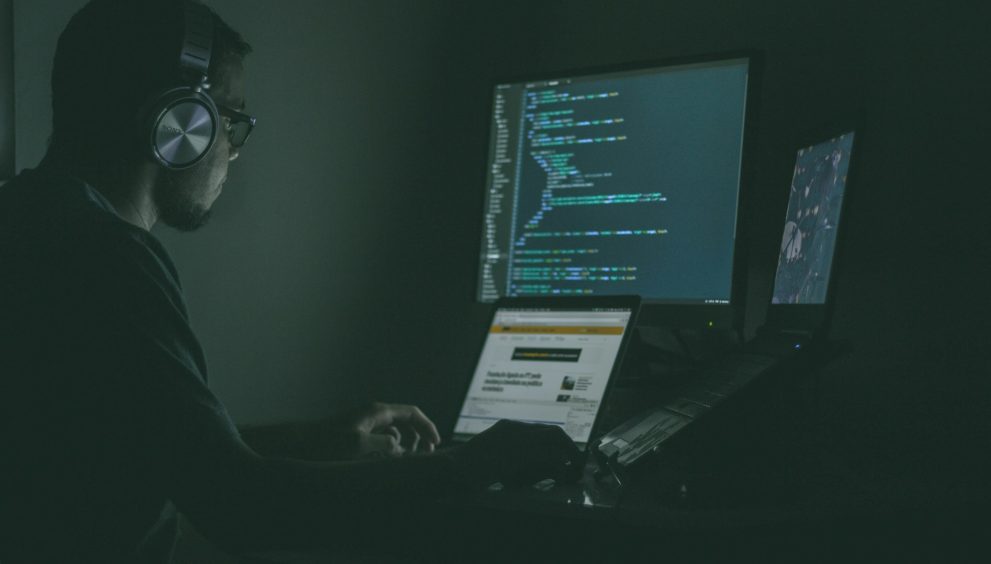Defend Down Under: Australia’s Top Cybersecurity Threats

Australians are known for their relaxed attitude and laid-back lifestyle, but when it comes to cybersecurity, staying chill isn’t an option. Cybercrime is booming globally, and Australia is no exception. In fact, a recent report by the Australian Cyber Security Centre (ACSC) revealed a staggering 33% increase in cybercrime incidents in the 2021-22 financial year.
This surge highlights the urgent need for Australians to be aware of the top cybersecurity threats lurking in the digital shadows. So, buckle up, mates, because it’s time to fortify your defences and protect yourselves from these malicious online actors.
1. Phishing: The Cunning Lure
Phishing emails and SMS messages are like digital fishing hooks, designed to reel you in and steal your personal information. These messages often appear legitimate, mimicking trusted organisations like banks, government agencies, or even friends and family. Once you click a malicious link or attachment, your device becomes infected with malware, or your credentials are compromised.
Stay vigilant:
- Scrutinize email addresses and sender names: Don’t be fooled by similar-looking domains or display names.
- Hover over links before clicking: Check the actual URL that appears, not just the displayed text.
- Be wary of unsolicited attachments: Never open them unless you’re absolutely sure they’re safe.
- Enable multi-factor authentication (MFA): This adds an extra layer of security to your online accounts. Learn more about multi-factor authentication from the Australian Cyber Security Centre: https://www.cyber.gov.au/mfa
2. Ransomware: The Digital Kidnapper
Ransomware encrypts your files, holding them hostage until you pay a hefty ransom. These attacks can target individuals, businesses, and even critical infrastructure. The pressure to regain access to your data can be immense, but paying the ransom doesn’t guarantee success and only emboldens criminals.
Be proactive:
- Regularly back up your data: Store backups offline or in a secure cloud storage solution.
- Update your software: Patching vulnerabilities closes the doors cybercriminals exploit.
- Use strong passwords and MFA: Make them complex and unique for each account.
- Beware of suspicious links and attachments: See point 1!
3. Data Breaches: The Unwanted Exposure
Data breaches occur when sensitive information like personal details, financial data, or medical records are leaked or stolen. These breaches can have severe consequences, leading to identity theft, financial loss, and reputational damage.
Protect your data:
- Be mindful of what information you share online: Only share what’s absolutely necessary.
- Use strong passwords and MFA: We can’t stress this enough!
- Be cautious about public Wi-Fi: Use a VPN for added security. Learn more about using a VPN safely from the Australian Signals Directorate
- Monitor your accounts for suspicious activity: Review statements and notifications regularly.
4. Social Engineering: The Art of Deception
Social engineers manipulate people to gain access to information or systems. They might pose as someone you trust, exploit your emotions, or create a sense of urgency to trick you into giving up sensitive information or clicking on malicious links.
Don’t be fooled:
- Verify the identity of anyone asking for personal information: Contact the organisation directly through official channels.
- Be wary of urgent requests: Legitimate organisations won’t pressure you into immediate action.
- Think before you click: Don’t rush into opening links or attachments, even from seemingly familiar sources.
- Be sceptical of too-good-to-be-true offers: If something seems fishy, it probably is. For more information on how to recognise and report scams, visit the SCAMwatch website: https://www.scamwatch.gov.au/
5. Be Wary of Social Media
- Two-Factor Authentication (2FA): Enable 2FA on all your social media accounts. This adds an extra layer of security by requiring a second verification step, like a code sent to your phone, in addition to your password.
- Report Phishing & Scams: If you encounter a suspicious message or post, report it to the social media platform immediately. This helps them identify and remove malicious content, protecting other users.
- Be Mindful of What You Share: Think twice before sharing personal information or sensitive details on social media. Once it’s online, it’s difficult to erase completely.
6. Be Smart About Online Shopping:
- Verify Websites: Before making a purchase online, ensure the website is legitimate. Look for trusted website indicators like HTTPS encryption and secure payment gateways.
- Strong Passwords: Use strong, unique passwords for your online shopping accounts, different from other accounts.
- Beware of Deals Too Good to be True: If a deal seems too good to be true, it probably is. Be wary of unsolicited offers or deals from unknown retailers.
- Monitor Transactions: Regularly review your bank statements and credit card transactions for any suspicious activity. Report any unauthorized charges immediately.
7. Educate Yourself and Others:
- Stay Informed: Keep yourself updated on the latest cybersecurity threats by following reputable sources like the Australian Cyber Security Centre (ACSC) and SCAMwatch.
- Talk to Family & Friends: Share your knowledge and awareness with family and friends to help them stay safe online. Encourage them to practice good cybersecurity habits.
- Report Suspicious Activity: If you see something suspicious online, report it to the appropriate authorities. This could be a phishing email, a malicious website, or even a suspicious social media post.
Remember: Cybersecurity is a shared responsibility. By taking these steps and staying vigilant, we can all contribute to a safer digital Australia.
Additional Resources:
- Stay Smart Online: https://www.staysmartonline.gov.au/
- Australian Cyber Security Centre (ACSC): https://www.cyber.gov.au/
- SCAMwatch: https://www.scamwatch.gov.au/
By incorporating these practical tips and utilizing the provided resources, you can become a cybersecurity champion and navigate the digital world with confidence. Remember, knowledge is power, and vigilance is your shield. Defend Down Under, one click at a time!












